On April 29, the Climate and Sustainability Initiative organized DKU’s first-ever Student Event on Climate and Sustainability, engaging both undergraduate and graduate students. The event coincided with the visit of Dr. Toddi Steelman, Vice Provost and Vice President for Climate and Sustainability at Duke University. Her visit offered a unique opportunity for DKU students passionate about climate and sustainability to engage with a leader who has spearheaded Duke’s climate commitments and helped the university achieve carbon neutrality in 2024. In her opening remarks, Dr. Steelman described the student event as the “highlight of her stay.”
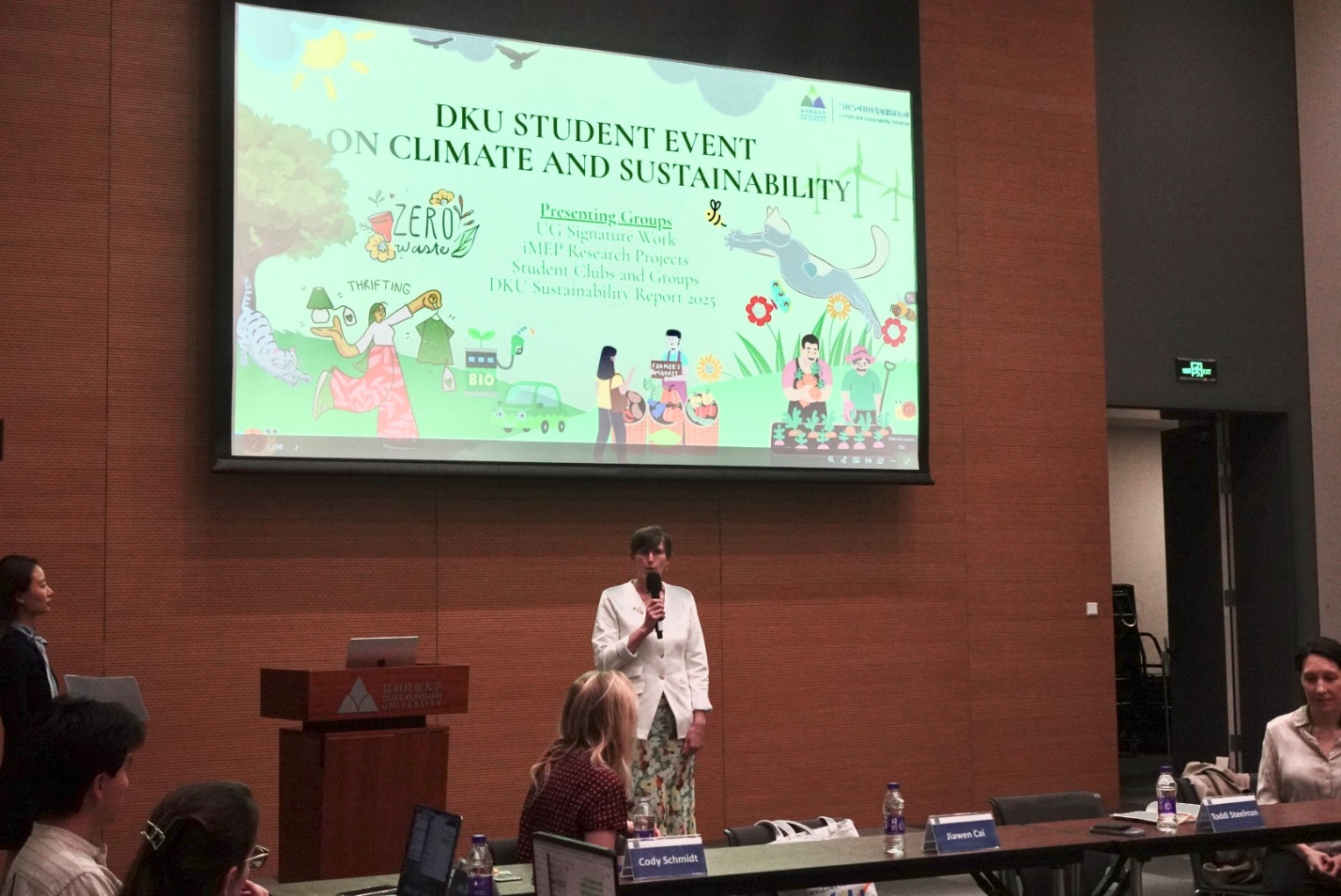
The event brought together over 40 student representatives who shared their passion for sustainability – marking the first event of its kind in DKU’s history. CSI hopes to continue this tradition in the years to come.
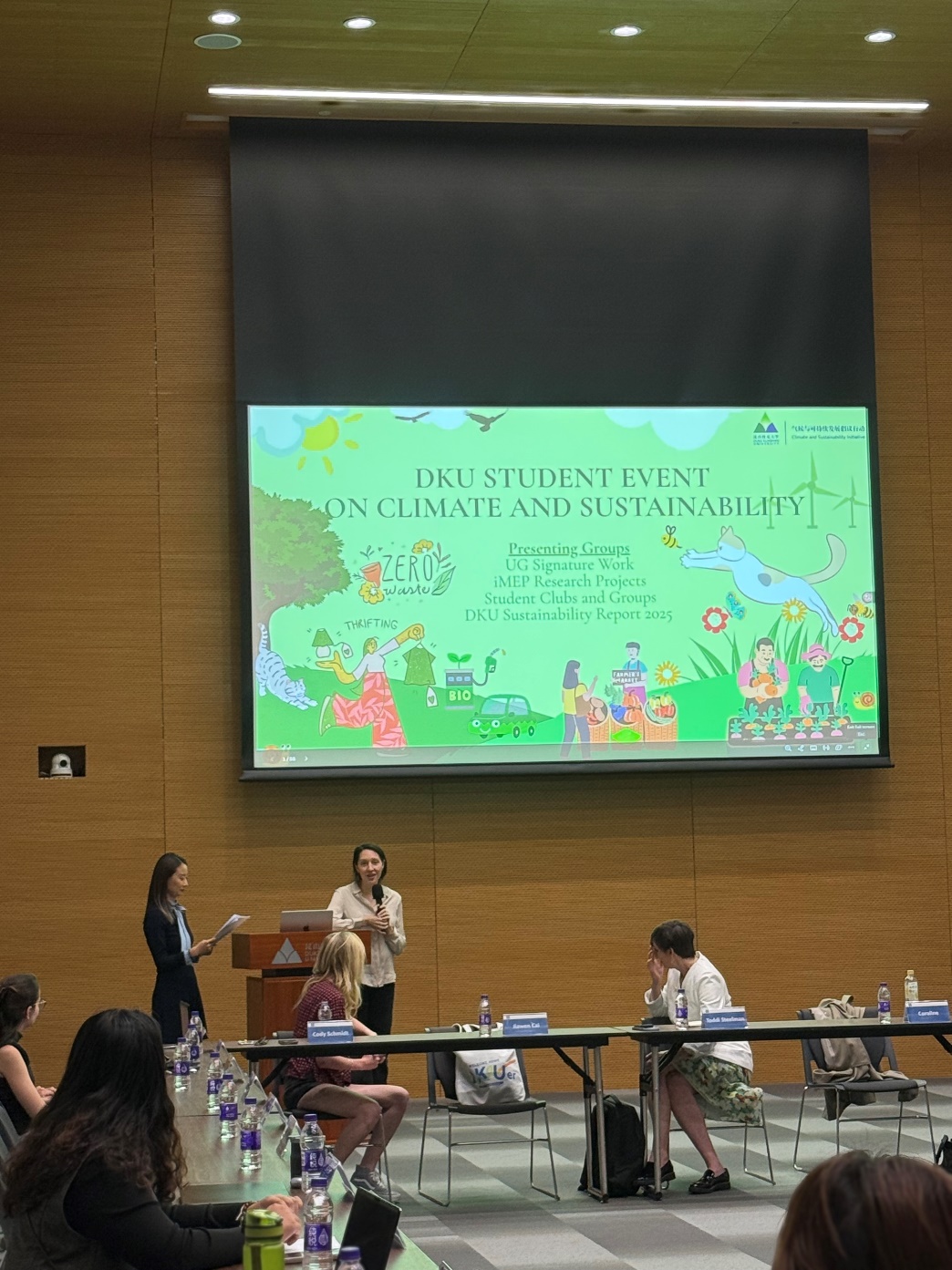
Professor Coraline Goron, Chair of the DKU Sustainability Committee and a key driver of the development of CSI, attended the student event to congratulate the students on their achievements and recognize their efforts in advancing sustainability activities and research at DKU.
The session was moderated by Jiawen Cai, Senior Coordinator for Undergraduate Academic Activities, who has been a strong advocate for sustainability on campus. She has supported various student-led projects, including bringing an organic farmers market to campus, building connections with local communities, and developing the DKU community garden.
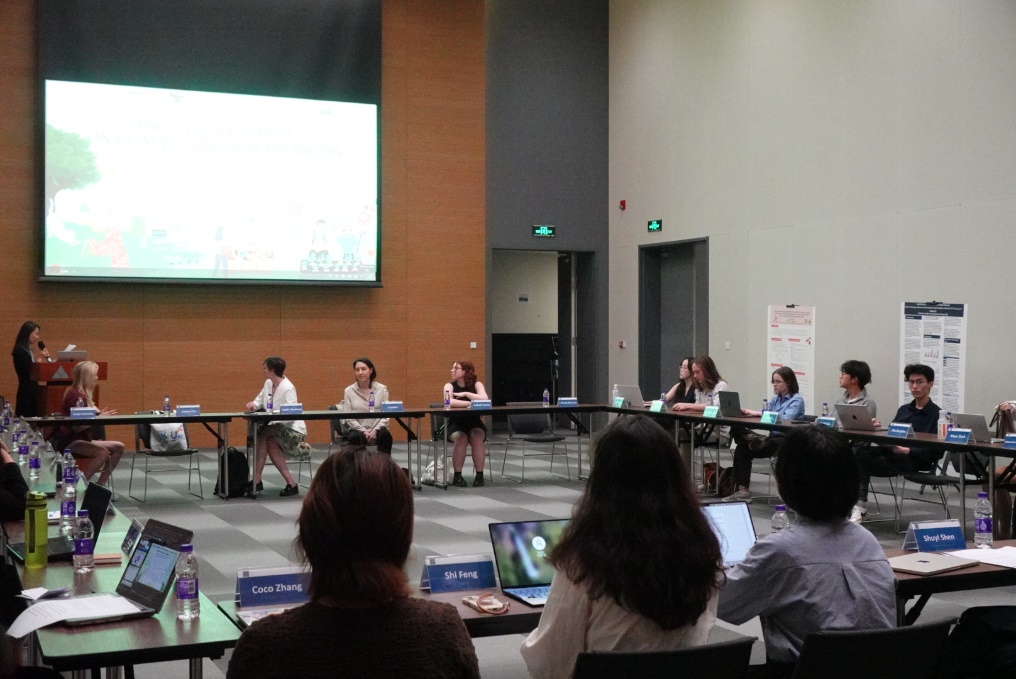
In total, four different groups of students were invited to present and showcase their work at the event:
1) Undergraduate students whose Signature Work focused on sustainability issues
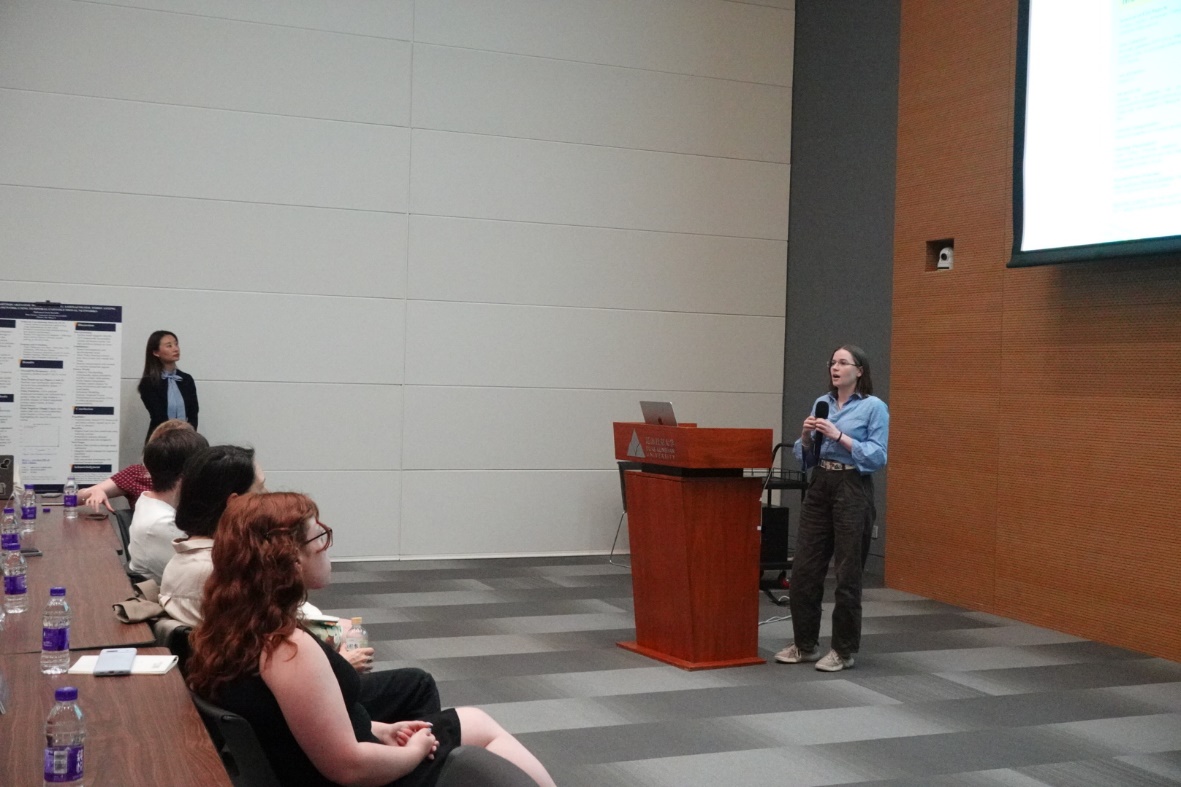
From investigating the role of memes in increasing donations for animal welfare, to exploring sustainability narratives, conducting discourse analysis on ESG reporting and greenwashing, and using data analysis to predict earthquakes, the undergraduate students from the Class of 2025 presented a variety of research projects showcasing the multi-disciplinarity of sustainability-related topics.
2) iMEP students conducting environmental research projects with DKU faculty
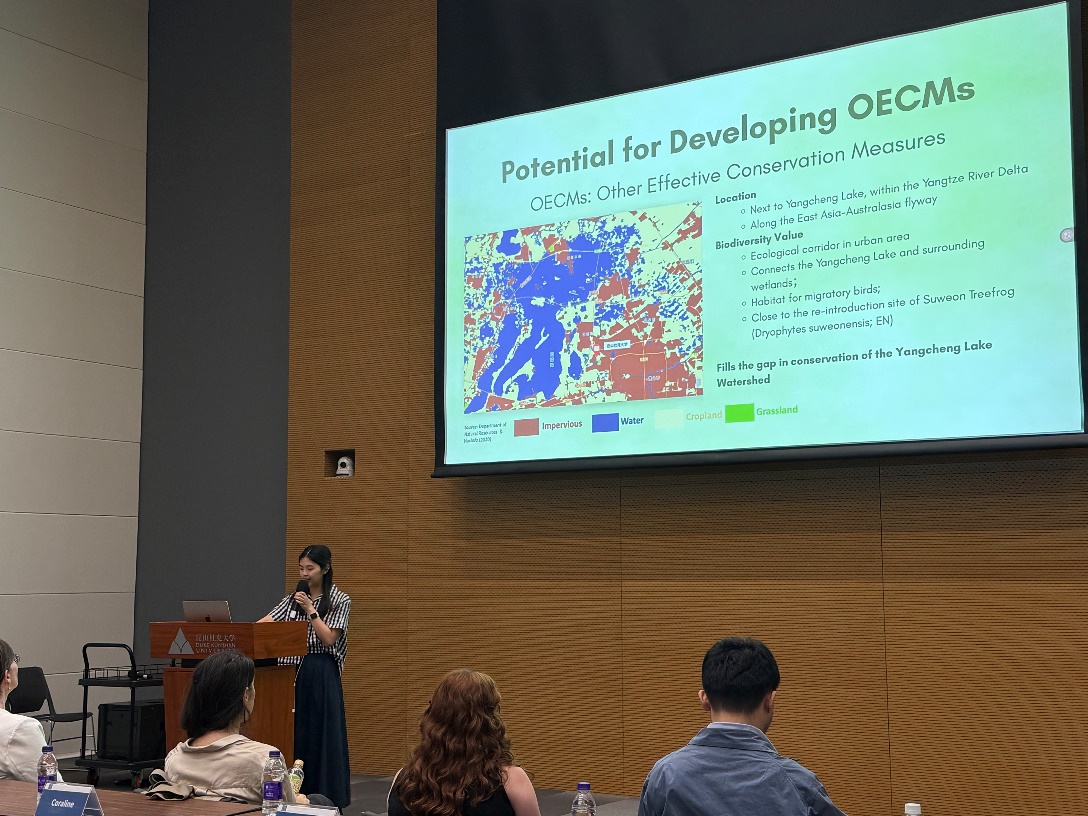
Four students from the International Master in Environmental Policy presented research carried out with faculty mentors at the environmental research center, covering topics such as eco-certification for indigenous-managed, biodiversity-friendly tea in Yunnan; the institutional evolution of eco-compensation in China; the impacts of tidally induced water table fluctuations on soil respiration in riparian zones; and leading a participatory biodiversity-friendly campus project through research and local engagement. By applying their knowledge to real-world contexts such as the communities around them, the iMEP group actively engages in sustainability research to contribute to sustainable development.
3) Student clubs and groups engaged in environmental and sustainability initiatives
Student clubs and groups are among the most passionate and motivated forces promoting sustainability at DKU. At this event, the following groups presented their work:
Sustainable DKU – This club published DKU’s first-ever Sustainability Report and regularly hosts sustainability projects such as campus thrift stores, movie nights, etc.
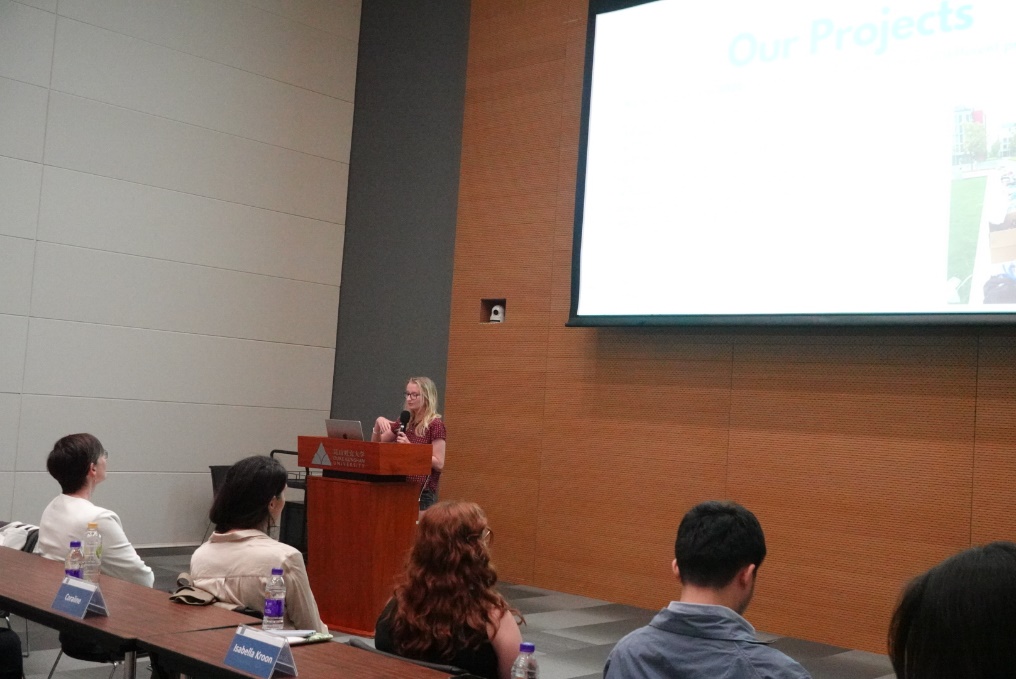
Animal Protection Academy – The leading advocate for animal welfare on campus, this group runs the Trap-Neuter-Return (TNR) program for stray cats and actively contributes to disease prevention efforts.
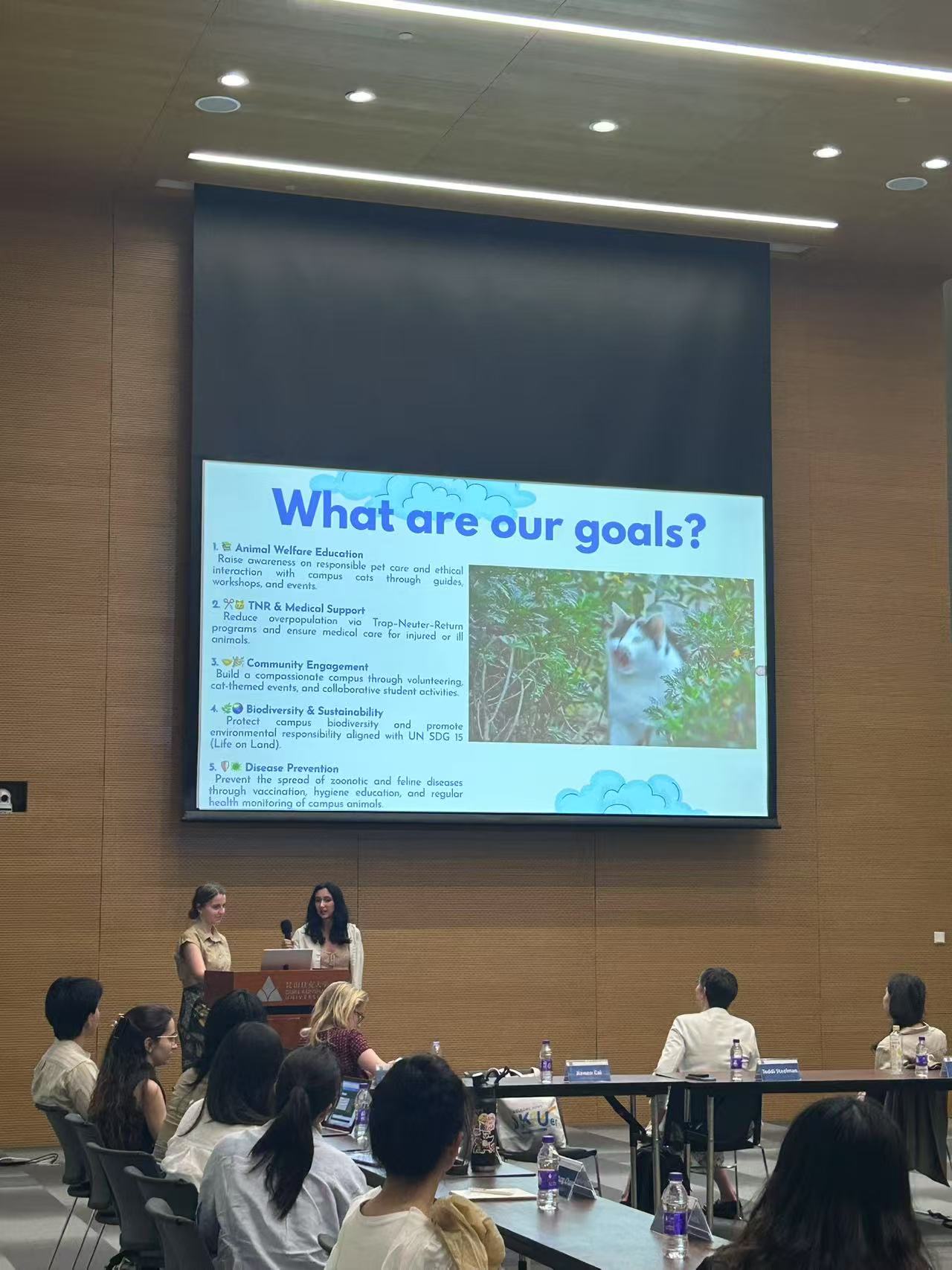
Muddy Waters – By bringing organic coffee to campus, this group aims to raise awareness about the environmental impact of coffee consumption, particularly the carbon footprint of production. Through the sale of diverse coffee varieties such as Vietnamese, Colombian, and Brazilian, they also promote cultural exchange within DKU’s international community.
DKU Farmer’s Market – Each week during the academic year, students visit Yuefeng Island, an organic farm, to learn about organic agriculture and assist local farmers with growing and harvesting crops. They then bring the produce back to campus to sell, with all profits returned to the farmers.
Anti-Bird Collision Club – With a mission to promote bird-friendly cities using a citizen-science approach, this club has made significant contributions to bird conservation on and around the DKU campus. Over the years, they have expanded their reach and now support nationwide bird protection initiatives.
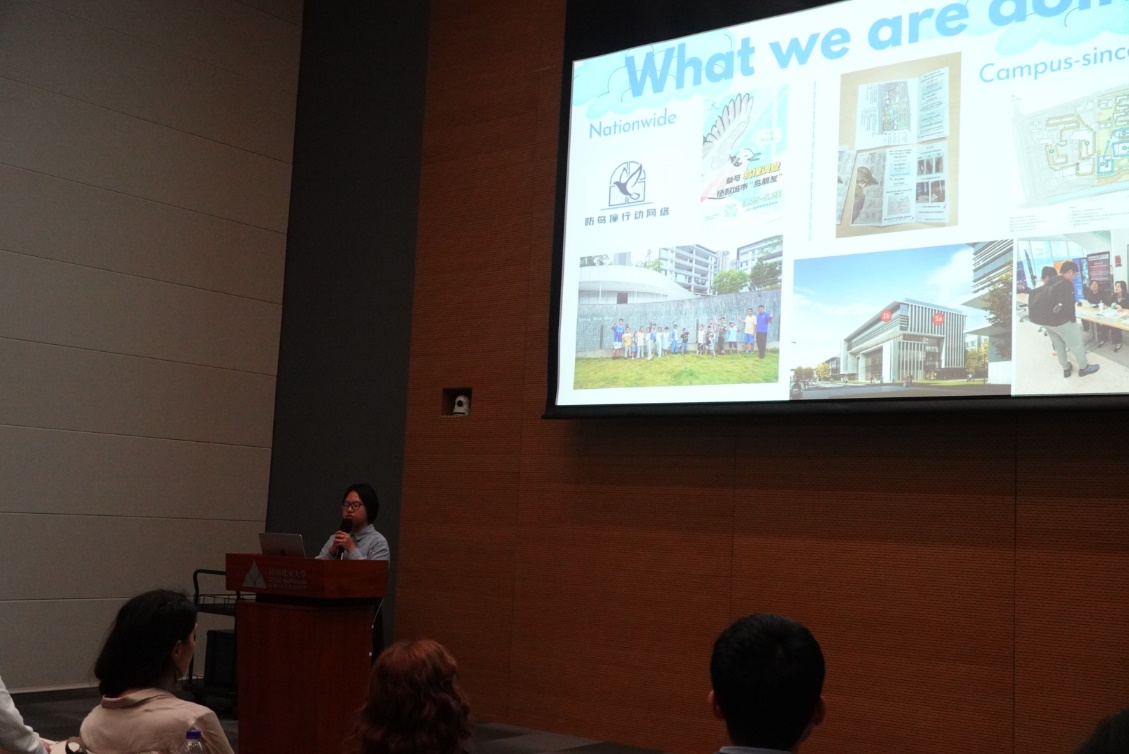
Plant Futures – This club promotes plant-based diets by organizing events such as Meatless Monday, hosting educational workshops, and teaching students how to make foods like hummus and soy milk.
DKU Food Waste Reduction Project – This student initiative conducted a two-week baseline study to raise awareness of food waste at DKU and advocate for reduced waste in the campus canteen.
Renewable Energy Organization – This group brings together students passionate about renewable energy and hosts workshops to exchange ideas and knowledge. Their work is supported by DKU’s Innovation & Entrepreneurship Initiative.
4) Student representatives involved in developing the 2024 DKU Sustainability Report
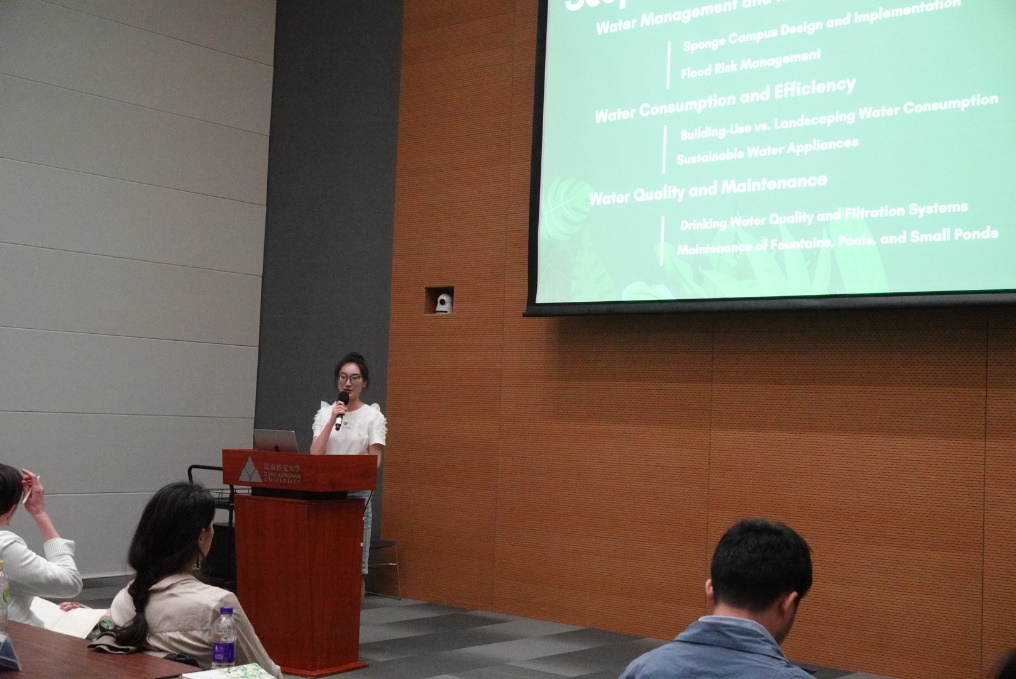
Building on the groundwork laid by Sustainable DKU with the first DKU sustainability report issued in November 2023, a new team of 31 students supported by the CSI and faculty mentors have undertaken work on DKU’s second Sustainability Report, based on 2024 data. This year’s report features six thematic topics: Water, Energy and Carbon, Food, Waste, Biodiversity, and Healthy and Climate-Resilient Buildings. The goal is to provide a comprehensive assessment of DKU’s progress in sustainable development, covering both phase 1 and phase 2 of the campus. At the student event, student team leaders and research lead from each group were invited to share updates on their progress.
After all the presentations, students participated in a Q&A roundtable with Dr. Steelman. Questions ranged from Duke University’s sustainability practices to her advice for aspiring environmental leaders. DKU students were eager to learn from an inspiring leader like Dr. Steelman.
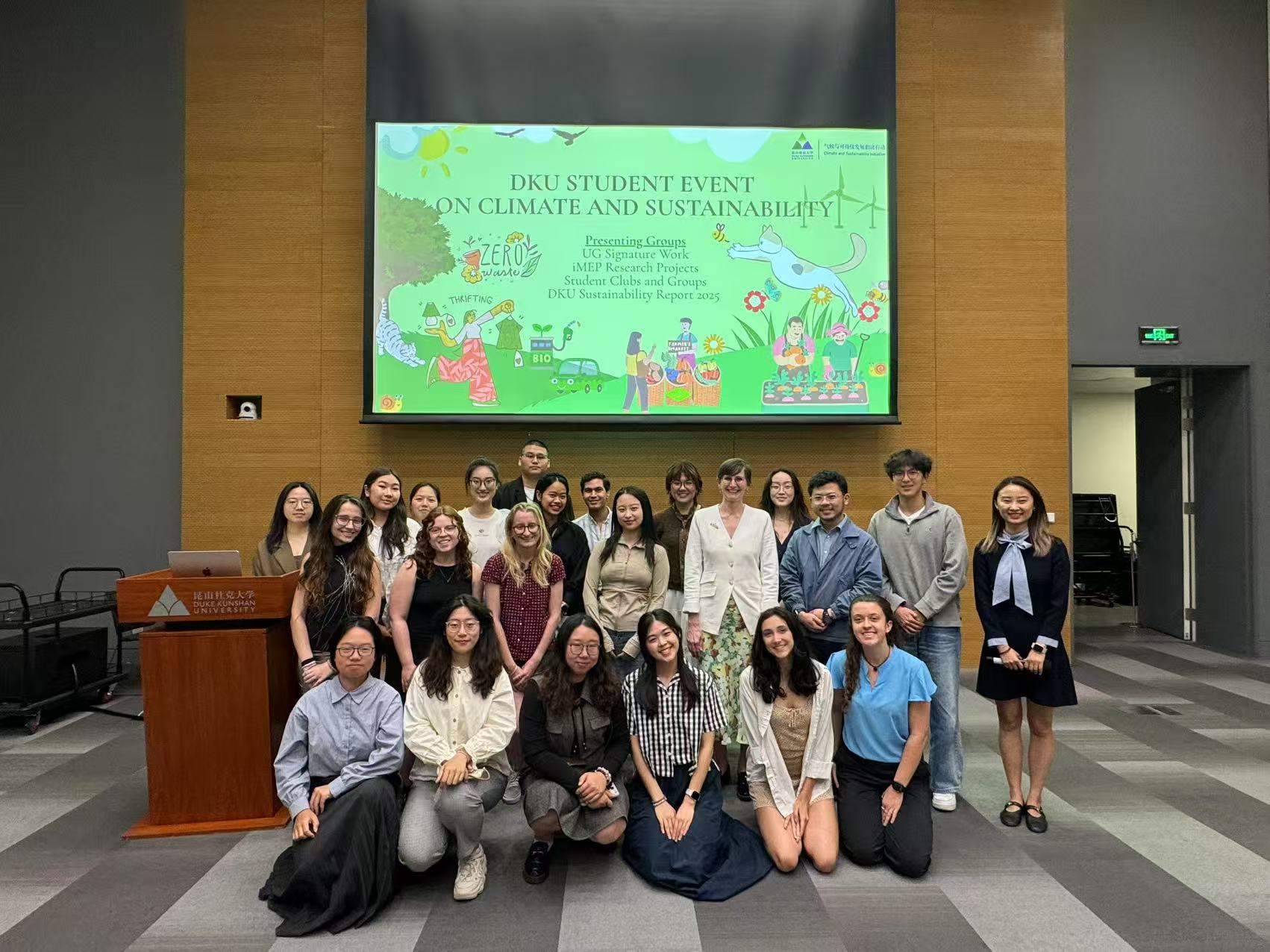
Photos by Yuhan Zhang and Yi Yu


 苏公网安备 32058302003266号
苏公网安备 32058302003266号
